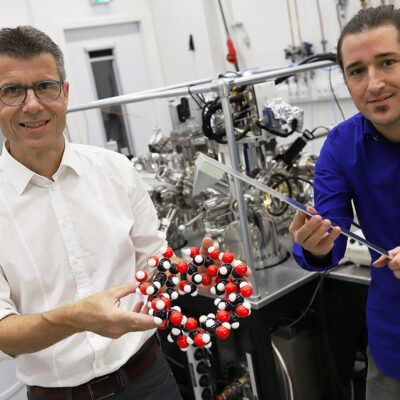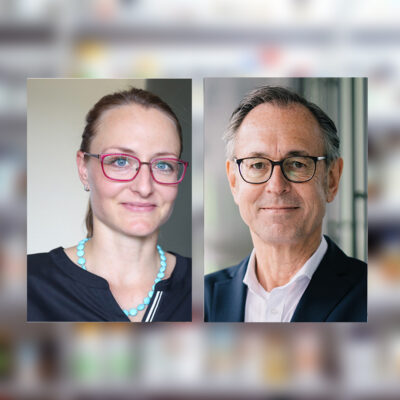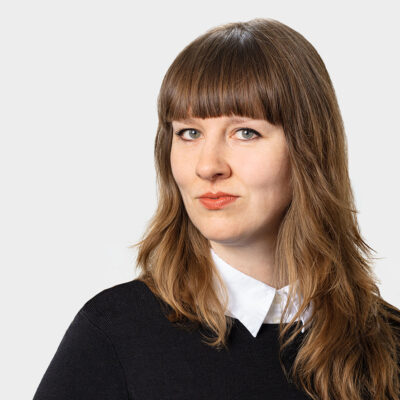After working in New Zealand, Scotland, England and the USA, Dr Timothy Candy joined Bielefeld University as a postdoctoral fellow three years ago. The analysis research in the Collaborative Research Centre (SFB) in mathematics attracted him to East Westphalia. Now he is going to move to the University of Otago in New Zealand for his first permanent appointment as a lecturer in mathematics. Before the move to his next academic stop, we take the opportunity to ask him three questions.
What brought you to Bielefeld University?
I had met Sebastian Herr, Bielefeld professor at the Faculty of Mathematics, and become acquainted with his work before at several international conferences. And I knew about the international focus of mathematics in Bielefeld. When a postdoctoral position was offered in a subproject of the then Collaborative Research Centre (SFB) 701, I saw it as a great opportunity and applied. I’m now working in the follow-on SFB 1283. During this time I have been able to focus my research and further develop it within the two Collaborative Research Centres.
So the Collaborative Research Centres played a major role for you?
Yes – because an SFB enables regular personal exchange with researchers from all over the world. Just recently, we were able to invite a visiting scholar from Japan to our SFB subproject on nonlinear wave equations. We benefited tremendously from being able to advance our joint research topic face-to-face. It was a very productive month. The international conferences organised by the SFB are also very important: there you quickly get an idea of the subjects other researchers are working on and you don’t isolate yourself in your own bubble. One of the highlights for me was coorganising a conference this year; I was able to make a lot of important contacts and present my work to other researchers. In a world where there are a lot of research findings it is very important to be visible with one’s own work.
Your next stop is New Zealand, your home. What will you take with you from your time in Bielefeld?
I have built up a large network and lots of collaborations at Bielefeld University. These contacts will also help me in my future academic career. Something I will certainly miss is the group dynamics of the Bielefeld Analysis Group. Sometimes, as a researcher, it’s possible to hit a wall when you are working on an academic problem. In Bielefeld it has always been great to be able to discuss mathematics with colleagues over a daily lunch in the canteen or over a cup of coffee and then make a breakthrough.
After studying at the University of Canterbury (New Zealand), Timothy Candy received his doctorate from the University of Edinburgh (United Kingdom). After a research fellowship at Imperial College London (United Kingdom) and a year at Johns Hopkins University (USA), he joined Bielefeld University in 2015 as a postdoctoral fellow. Here he conducted research on mathematical aspects of nonlinear wave equations in the Collaborative Research Centres (SFBs) 701 and 1283. In February 2019, he will be moving to the University of Otago (New Zealand).




